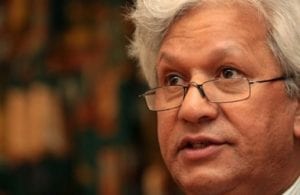As the invited keynote speaker for the Consulting Engineers South Africa (CESA) presidential visit in Gauteng on the night of 6 June, Nazir Alli laid down some ground rules about his stance in terms of project delivery.
The recently reinstated CEO of South African National Roads Agency Limited (SANRAL) delivered his address, which as he pointed out, was more like a conversation but a one way one at best. Alli spoke calmly with no visual presentation slides and no cue cards and his message, both through his tone and its contents were not left open to interpretation. Although he steered cleared of the issues surrounding e-tolling, SANRAL, and a R20 billion debt he spoke about the ease of public and private business sentiment and the impact these have on government policy and strategy. He pointed out that the public sector has limited choice when it comes to procurement while the private sector has plenty enabling to keep its best interests at heart. He alluded to the irony of this as price collusion in tender bids remain a cause for suspicion – further pointing out that government does not dictate pricing. With this in mind he stated that government has no choice but to show a great amount of trust towards the private sector. Research from a recent CESA survey indicates that Black (including Asian and Coloured) equity, including executive directors, non-executive directors, members and partners, increased to 27.8%, from 21.2% in the June 2011 survey. The number of firms looking for engineers increased to 74% from 66% in the June 2011 survey. This is a positive recovery, following 2009 and 2010, when recruiting of engineers was not a priority.Trying to conform to BBBEE requirements means demand for black engineers will continue to put pressure on firms, as there are simply not enough black engineers available to fill those positions. With this in mind Alli stated that it while the number of black engineers is a cause for concern it remains a private sector issue to grow these numbers – putting the transformation ball back in the private sector’s court. Transparency International rates South Africa 64th in the world with a score of 4.1 out of 10 which is far from flattering. Alli stated he is surprised when the general public airs their opinions on this, as corruption is not new to South Africa and the perception that it has reared its head in the last two decades is a misinformed in. Alli stated that certain systems and procedures within government will be re-examined and reworked to hinder back-hands and bribery. by Richard Jansen van Vuuren Is private sector responsible for the lack for black engineers in South Africa? What part does government play when it comes to dictating prices on tenders? Join the discussion on Facebook and Twitter and have your say.








